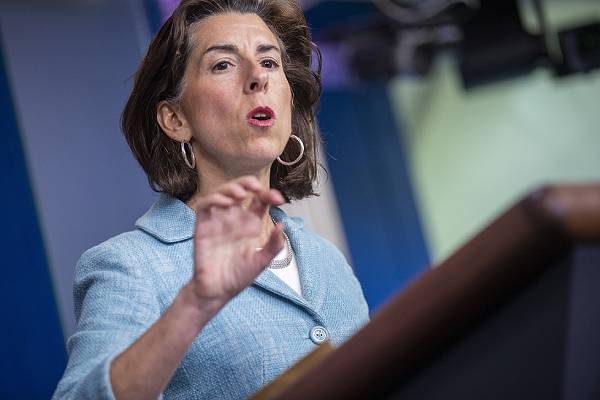US Commerce Secretary Gina Raimondo warned that protecting American steel is a national security issue, thus reaffirming the position of Joe Biden's predecessor, who imposed protective duties on metals, which at one time angered European NATO allies.
As you know, European and American officials are now looking for ways to converge positions in world trade in order to avoid an escalation of mutual import tariffs later this year.
In 2018, Donald Trump imposed 25 percent duties on steel imports from Europe. The EU responded by imposing its own tariffs on a range of US imports, but shelved plans to raise those tariffs in May as a gesture aimed at settling the dispute. Under the moratorium, European import duties on US products will take effect in early December.
"We would like to come to a solution," said Gina Raimondo in interview Financial Times. “But having said that, we must defend the US steel industry. Every year, 10 years before the introduction of tariffs, we never went beyond 80 percent of the metallurgical capacity. This is a national security risk, an economic risk. "
European officials have insisted that the EU does not pose a threat to US national security, although they have acknowledged that global overcapacity threatens both the European and American steel industries.
Canceling tariffs will be politically painful for the current US president because they are popular in the politically powerful steel industry and in some industrial states, including Indiana, Ohio and Pennsylvania, which will be key in the next election.
Discussions on reciprocal tariffs are part of a broader US-EU effort to strengthen transatlantic ties since Trump's rule. Earlier this year, the EU and the US agreed to suspend a 17-year-old dispute over aircraft subsidies, lifting the threat of billions of dollars in reciprocal penalties to spur transatlantic relations.
The deal takes the form of a five-year agreement to suspend import duties related to the original dispute. In addition, a ministerial working group is being set up to discuss the limits of subsidies and overcome any problems that may arise between the two parties.




